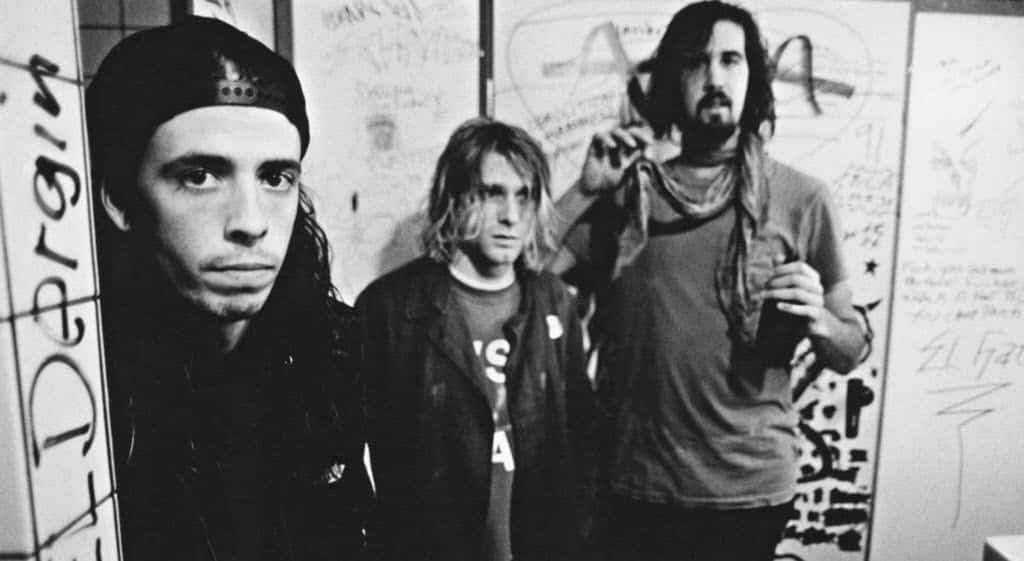Pop/Hip Hop/R&B
10 Best Nirvana Songs of All Time
Nirvana was a groundbreaking American rock band formed in 1987, widely credited with popularizing the grunge music genre. The band, led by frontman Kurt Cobain, also included bassist Krist Novoselic and, from 1990 onward, drummer Dave Grohl. Nirvana’s music combined elements of punk rock and heavy metal with introspective lyrics, and their raw, powerful sound resonated with a generation.
Their 1991 album *Nevermind*, featuring the iconic single “Smells Like Teen Spirit,” brought them international fame and is often hailed as one of the greatest albums of all time. The band’s influence on music and culture was profound, shaping the landscape of alternative rock and the 1990s music scene.
Nirvana’s career was tragically cut short by Cobain’s death in 1994, but their legacy endures through their impactful music and lasting influence on rock and alternative genres.
1. Smells Like Teen Spirit
“Smells Like Teen Spirit” is a seminal song by Nirvana, released in 1991 as the lead single from their album *Nevermind*. Written by Kurt Cobain, Krist Novoselic, and Dave Grohl, the song is often credited with bringing grunge music and alternative rock into the mainstream. Its distinctive riff, powerful vocals, and anthemic chorus capture the angst and rebellion of a generation.
The lyrics, “With the lights out, it’s less dangerous / Here we are now, entertain us,” express a sense of disillusionment and dissatisfaction, resonating with the youth of the early ’90s. The accompanying music video, featuring a chaotic high school pep rally, further solidified the song’s status as a cultural touchstone. “Smells Like Teen Spirit” remains one of Nirvana’s most iconic and influential tracks, often considered a defining song of the 1990s.
2. Come as You Are
“Come as You Are” is a notable song by Nirvana, released in 1992 as a single from their groundbreaking album *Nevermind*. Written by Kurt Cobain, the song features a memorable, haunting guitar riff and explores themes of authenticity and acceptance. The lyrics, “Come as you are, as you were / As I want you to be,” invite listeners to embrace their true selves and reject pretense.
The song’s production, characterized by its raw sound and dynamic shifts, captures the essence of Nirvana’s grunge style. The accompanying music video, which features a mix of surreal and mundane imagery, further emphasizes the song’s introspective and enigmatic nature. “Come as You Are” became one of Nirvana’s most enduring hits and is celebrated for its impact on the alternative rock genre.
3. Lithium
“Lithium” is a powerful track by Nirvana, released in 1992 as a single from their album *Nevermind*. Written by Kurt Cobain, the song explores themes of emotional struggle, self-medication, and the search for inner peace. Its title refers to the drug lithium, often used to treat bipolar disorder, reflecting the song’s exploration of mood swings and mental health.
The song features a dynamic structure with contrasting quiet and loud sections, characteristic of Nirvana’s grunge sound. The chorus, “I’m so happy ’cause today / I’ve found my friends, they’re in my head,” captures the song’s blend of melancholy and defiant optimism. “Lithium” is celebrated for its raw emotional intensity and remains a significant part of Nirvana’s legacy in the alternative rock genre.
4. In Bloom
“In Bloom” is a 1992 single by Nirvana from their seminal album *Nevermind*. The song is known for its catchy melody, dynamic contrasts, and poignant lyrics. Written by Kurt Cobain, “In Bloom” contrasts its upbeat, grunge-infused sound with introspective lyrics that reflect on the misinterpretation of Nirvana’s music by mainstream audiences. The chorus, with its memorable hook, and the verses convey a mix of irony and frustration. The song’s music video, featuring a mock performance of a ’60s variety show, further underscores the band’s critique of how their music was received. “In Bloom” is considered one of Nirvana’s signature tracks and a key part of their legacy.
5. Heart-Shaped Box
“Heart-Shaped Box” is a 1993 single by Nirvana from their third and final studio album, *In Utero*. The song is known for its haunting, brooding sound and complex, enigmatic lyrics. Written by Kurt Cobain, “Heart-Shaped Box” features a mix of heavy guitar riffs and quieter, more introspective verses, creating a dynamic contrast. The lyrics have been interpreted in various ways, often seen as a reflection on Cobain’s personal struggles and relationships. The song’s music video, directed by Anton Corbijn, features surreal and symbolic imagery that complements its dark and introspective tone. “Heart-Shaped Box” is widely regarded as one of Nirvana’s most iconic tracks and a defining example of their unique sound.
6. All Apologies
“All Apologies” is a 1993 single by Nirvana, featured on their album *In Utero*. The song, written by Kurt Cobain, is known for its raw, introspective lyrics and its blend of acoustic and electric elements. It reflects themes of remorse, introspection, and a sense of disillusionment. The song’s poignant and reflective tone is complemented by Cobain’s emotive vocal delivery and the track’s mellow, yet powerful arrangement. “All Apologies” has been praised for its emotional depth and has become one of Nirvana’s most enduring and resonant songs. It was also included in the band’s 1994 MTV Unplugged in New York performance, further cementing its place in their legacy.
7. About a Girl
“About a Girl” is a 1989 single by Nirvana from their debut album, *Bleach*. The song features a catchy, melodic riff and showcases Kurt Cobain’s ability to blend melodic elements with grunge. The lyrics, which Cobain described as being about a failed relationship, are introspective and somewhat ambiguous, reflecting themes of disconnection and emotional struggle. The song’s relatively clean sound, compared to some of Nirvana’s other tracks, reveals Cobain’s early songwriting style and hints at his later, more polished approach. “About a Girl” gained additional attention when it was performed on Nirvana’s MTV Unplugged in New York, highlighting its enduring appeal and significance in the band’s discography.
8. Rape Me
“Rape Me” is a provocative and powerful song by Nirvana, released in 1993 as a single from their album *In Utero*. Written by Kurt Cobain, the song is known for its raw and confrontational lyrics, which deal with themes of personal violation and resistance.
The song’s chorus, “Rape me, rape me, my friend,” is often interpreted as a commentary on the objectification and exploitation of individuals. Cobain used the song to express his feelings of being misunderstood and misrepresented, both personally and within the music industry. The track’s stark, grunge sound complements its intense and challenging subject matter. Despite its controversial title, “Rape Me” was intended to provoke thought and discussion, reflecting Cobain’s desire to address difficult and uncomfortable topics in his music.
9. Pennyroyal Tea
“Pennyroyal Tea” is a 1993 single by Nirvana, featured on their album *In Utero*. The song is known for its melancholic tone and introspective lyrics, which are often interpreted as exploring themes of illness, personal struggles, and existential despair. The title refers to pennyroyal tea, a herbal remedy historically used for various ailments, adding a layer of symbolic meaning to the song. The arrangement features a mix of acoustic and electric elements, creating a somber, reflective atmosphere. “Pennyroyal Tea” is notable for its raw emotional depth and is considered one of Nirvana’s more poignant and powerful tracks.
10. The Man Who Sold the World
“The Man Who Sold the World” is a song originally written and recorded by David Bowie, released in 1970 on the album of the same name. It is known for its enigmatic lyrics and Bowie’s distinctive vocal delivery. The song explores themes of identity, alienation, and self-perception.
Nirvana famously covered “The Man Who Sold the World” during their MTV Unplugged in New York performance in 1993. Kurt Cobain’s rendition brought the song a new level of raw, emotional intensity. The cover is notable for its haunting arrangement and Cobain’s poignant vocals, and it introduced the song to a broader audience. Nirvana’s version of “The Man Who Sold the World” is often praised for its powerful and memorable interpretation.
Source link


